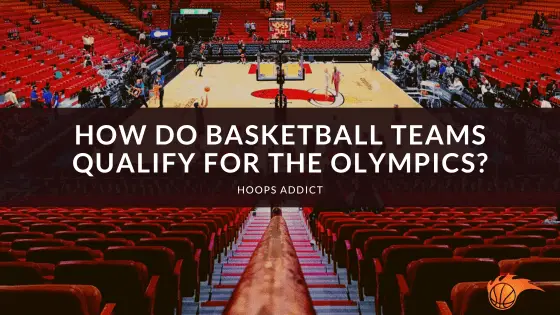As an avid NBA follower, you may be familiar with the earnings of the league’s top players, as their contracts are often widely publicized.
However, do you know how much NBA general managers make? Strangely, this information isn’t always prominently displayed in the news.
NBA general managers are crucial figures within the league, tasked with assembling teams, executing trades, and collaborating with coaches and players to achieve success on the court.
This article will examine the NBA general manager job description and how much they typically make. Let’s get into it!
 What Do NBA General Managers Do?
What Do NBA General Managers Do?
A general manager (GM) has various responsibilities requiring high-level skills and expertise. This involves navigating complex and unpredictable situations while making strategic decisions critical to a team’s success. Some GMs also act as the president of basketball operations.
The key responsibilities of a general manager include a variety of tasks, including:
Developing and implementing an overall team strategy: GMs identify vital players to target within the draft, seek free operators, and make exchanges to move forward with the team’s execution. GMs must oversee the team’s budget and ensure that they don’t overspend on players, which needs an understanding of money-related controls and the capacity to adjust to numerous competing needs.
Player evaluation: GMs work closely with coaches, scouts, and other front-office staff to evaluate players and determine their potential value to the team. This involves analyzing a range of performance metrics and scouting reports to make informed decisions about player acquisition and retention, which can be challenging given the burstiness and unpredictability of player performance.
Trade management: (GMs) are responsible for negotiating trades with other teams to acquire new talented players or address any weaknesses on their team’s roster. This process entails identifying improvement areas and devising creative solutions to enhance the team’s performance.
Drafting new players: GMs must be able to identify and draft new players who have the potential to contribute to the team’s success. This necessitates a profound comprehension of player potential and the ability to identify hidden gems in a competitive market.
Salary cap management: GMs must work within the league’s salary cap rules to ensure the team can stay financially competitive while fielding a talented roster. This requires careful management of financial resources and an ability to balance short-term and long-term goals.
 How Many General Managers are in the NBA?
How Many General Managers are in the NBA?
There are 30 teams in the NBA. Each team has a general manager. Some teams, however, possess a general manager and a basketball operations president who oversees the entire basketball operations department.
While the specific structural design and title for each team’s front office may differ, the role of a general manager is critical across all organizations.
 How Do You Become a General Manager in NBA?
How Do You Become a General Manager in NBA?
Becoming a general manager in the NBA is no easy feat, and there is no one prescribed path to reach this career milestone. Most GMs have diligently worked their way up through the ranks of their organization, starting as a scout or assistant coach before being elevated to a more esteemed role. Some may have acquired experience working in other sporting leagues or sectors before transitioning to the NBA.
A bachelor’s degree is typically required to attain the position of NBA GM, while a master’s degree in sports management or a related field may provide an advantageous edge. Establishing connections, fostering relationships, and acquiring knowledge by assuming various roles within the NBA or other sporting leagues are essential to securing a successful GM position.
 How Much Do NBA General Managers Make on Average?
How Much Do NBA General Managers Make on Average?
The NBA GM oversees their team’s player personnel decisions, including drafting new players, signing free agents, and making trades. Some GMs also acts as the team’s president on basketball operations. This high-pressure job requires a unique blend of basketball knowledge, business acumen, and people skills.
Despite the demanding nature of the job, one pertinent question lingers: what is the average salary for these top-tier decision-makers?
On average, NBA GMs earn between $1 million to $3 million annually, although this compensation range varies depending on several factors, such as team performance, market size, experience level, and track records.
 5 Factors that Affect NBA GM’s Salary
5 Factors that Affect NBA GM’s Salary
An NBA general manager (GM) is a highly coveted sports industry position commanding a significant salary. However, the NBA front office salaries are not fixed, and several factors can impact them.
Here are five of them:
Team Performance: GMs of teams that consistently perform well and make deep playoff runs will often be compensated more generously than those of underperforming teams. Such teams generate more revenue and have more resources to invest in their front-office staff.
Market Size: Larger markets typically generate more revenue and can afford to pay their front office staff higher salaries. In contrast, smaller markets may not have the same financial resources, resulting in lower salaries for their GMs.
Ownership Philosophy: The team owners’ business philosophy is another factor that impacts the GMs’ salary. Some owners are willing to invest in their team’s front staff, while others prioritize cost-cutting measures.
Experience and track record: GMs with a demonstrated track record of constructing winning teams and making wise trades and signings will often be in high demand and command higher salaries. Conversely, GMs with a poor track record may receive lower salaries or be overlooked for top positions.
Emphasis on Analytics: In recent years, there has been an increased emphasis on analytics and data-driven decision-making in the NBA. Hence, some teams are recruiting GMs with a background in data analysis and advanced statistics, which can command higher salaries. These GMs are highly sought after because of their ability to use data to make informed decisions and construct winning teams.
By considering the team’s performance, market size, experience, track record, emphasis on analytics, and ownership philosophy, NBA teams can ensure that they appropriately compensate their GMs and attract top talent to their organizations.
Ultimately, the success of an NBA team relies on the expertise and skill of its GM, and investing in these individuals can pay dividends in the long run.
 Top 5 Highest-Paid NBA GMs
Top 5 Highest-Paid NBA GMs
As passionate basketball fans and keen followers of the NBA, we often focus on the players and coaches who make the headlines with their dazzling performances and colorful personalities. However, behind every successful team is a talented, dedicated, and best NBA general manager who makes strategic decisions, negotiates contracts, and builds a winning culture.
Here is the list of NBA general managers who are in the top 5 in yearly salary, according to CareerExplorer Guide:
1. Pat Riley ($11 million) – Pat Riley is the Miami Heat’s General Manager and president. He’s been in the NBA since 1967 as the seventh overall pick by the San Diego Rockets. He is one of the greatest coaches of all time. He won five championships as a head coach, four with the Los Angeles Lakers and one with the Maimi Heat. Riley was responsible for forming the trio of LeBron James, Dwayne Wade, and Chris Bosh. The three-time Coach of the Year has a net worth of over $80 million and is earning over $11 million annually.
2. RC Bufford ($10 million) – following closely behind is RC Buford, the San Antonio Spurs GM, who earns $10 million this year. Buford has been with the organization since 1988 and has played a crucial role in shaping the team’s success. He started as an assistant coach before working his way up to the GM role in 2002, where he has remained ever since.
3. Bob Myers ($8 million) – Robert Michael Meyers, the GM of the Golden State Warriors since 2012, may not have the longest tenure or the most impressive resume among NBA GMs, but he surely knows how to build a winning team. He was one of the youngest NBA General Managers when he was appointed as the Warriors’ GM. Myers has overseen the drafting and development of superstars like Stephen Curry, Draymond Green, and Klay Thompson, as well as the recruitment of Kevin Durant and DeMarcus Cousins. According to Celebrity Net Worth, Myers’ net worth is $30 million. He is earning about $8 million as a GM.
4. Neil Olshey ($6.5 million) – Neil Olshey was the general manager of the Portland Trailblazers from 2012-2021. He has a net worth of over $50 million and reportedly made roughly $6.5 million annually during his time with the Blazers.
5. David Griffin ($5.8 million) – Griffin was the General Manager of the Cleveland Cavaliers. He was the runner-up for the 2014-2015 NBA Executive award. One of the notable moves Griffin has made in his stint with the Cavaliers was signing LeBron James and forming a big three with Kevin Love and Kyrie Irving. The trio won the NBA Championship in 2016, the first for the Cavaliers. The team’s success after LeBron James rejoined the Cavaliers led to bonuses and commissions, making Griffin a top-tier GM. He was earning an estimated $5.8 million per year. Griffin now works as the vice president of basketball operations for the New Orleans Pelicans.
Wrapping Things Up: How Much Do NBA General Managers Make?
The role of NBA general managers is to design and execute a comprehensive team strategy, assess player performance, manage trades, select new players, and regulate the salary cap. Some GMs also acts as NBA president of basketball operations. Their efforts are instrumental in the success of a basketball team, and their compensation can vary depending on various factors.
While the average annual salary for an NBA GM is approximately $3 million, the best NBA general managers can earn much more. For example, the highest-paid NBA GMs receive salaries ranging from $5.8 million to $11 million annually.
These individuals must possess an in-depth comprehension of basketball, a sharp eye for talent, and the ability to make difficult decisions under pressure. Thus, NBA front office salaries reflect their value to their teams and the league.
While being an NBA GM is challenging and demanding, it can also be rewarding and fulfilling professionally and financially.
We hope you enjoyed this post! If you did, be sure to check out our other basketball FAQ articles here.

 What Do NBA General Managers Do?
What Do NBA General Managers Do? How Many General Managers are in the NBA?
How Many General Managers are in the NBA? How Do You Become a General Manager in NBA?
How Do You Become a General Manager in NBA? How Much Do NBA General Managers Make on Average?
How Much Do NBA General Managers Make on Average? 5 Factors that Affect NBA GM’s Salary
5 Factors that Affect NBA GM’s Salary Top 5 Highest-Paid NBA GMs
Top 5 Highest-Paid NBA GMs

